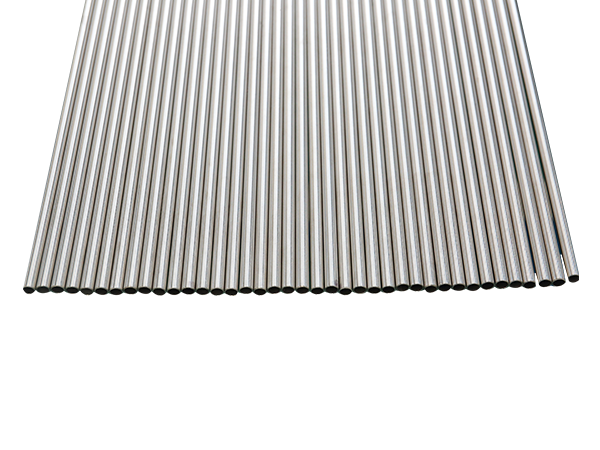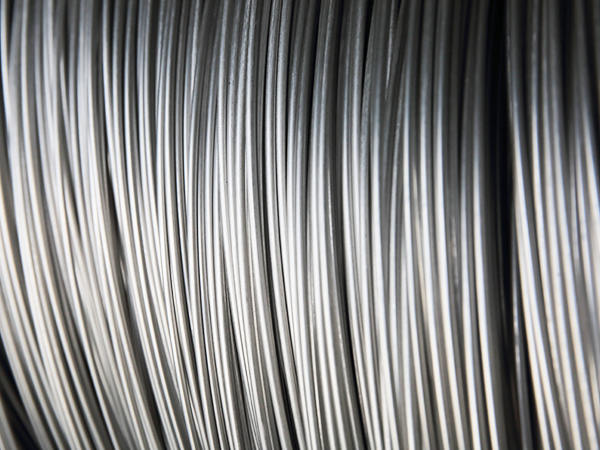·The introduction of diesel passenger vehicles into the industrial 4.0 strategic market is still waiting to be accelerated
With the diversification of the passenger car market demand, diesel passenger cars, which have been swaying outside the mainstream of passenger cars, are gradually attracting the attention of the industry.
Precision alloys usually refer to functional metals with special physical properties, such as magnetic, electrical, and thermal properties, including magnetic alloys, elastic alloys, and expanded alloys. The precision alloys produced by Seonjip are mainly used in industries such as electronic devices, instruments and so on.
Kovar Sheet,Invar 36 Bar,Invar 36 Round Bar,Nickel Steel Alloy Invar Jiangsu Seonjip Technology Co.,Ltd. , https://www.seonjip.com
Recently, in the detailed version of the "Made in China 2025", the Ministry of Industry and Information Technology, known as the "Industry 4.0" program of China, the "application of diesel engines in passenger cars" was clearly stated. According to market participants, China's current diesel passenger car sales account for only about 0.3% of passenger car sales, while in Europe this proportion is as high as 50%. “The reason for the low sales of diesel passenger cars in China is many aspects.†Mao Yanyuan, sales director of Bosch Automotive Diesel Systems Co., Ltd., told the reporter of “Daily Economic News†that “the previous diesel supply was insufficient, the quality of oil products was relatively poor, and it was not suitable. Passenger car use; plus fewer products available on the market, sales have been unable to get up."
However, with the diversification of the passenger car market demand and the hot sale of SUV models, the diesel supply is gradually plentiful, and diesel passenger cars are considered to have a large room for improvement.
In the view of some industry insiders, the low proportion of domestic diesel passenger cars is the opportunity contained in this market; on the other hand, with the popularization of new energy technologies and turbocharging technology, diesel vehicles account for passenger cars. The proportion will not be too large, it may be just one of the important components of the diversification of the vehicle's energy structure.
Diesel vehicle market environment improvement “The sales volume of Korean diesel passenger cars increased from 20% in 2011 to 40% last year.†A related person from the marketing department of Bosch Automotive Diesel Systems Co., Ltd. told reporters that “the gradual surplus of diesel production, SUV The hot sale of models and the emission requirements of environmental protection policies are the reasons for the popularity of diesel vehicles in Korea."
In Mao Yuanyuan's view, these phenomena have also appeared in China. Mao said that domestic diesel production has increased from 1 million tons in 2004 to 1.6 million tons last year, while the consumption ratio of gasoline and diesel has decreased from 1:2.1 in 2004 to 1:1.7 last year.
In addition, the domestic four-vehicle diesel standard has been implemented since January 1 this year. According to this standard, the sulfur content of diesel oil will drop below 50ppm. In addition, the national five-vehicle diesel standard will start from January 1 next year. It was implemented in 11 provinces in the east and pushed to the whole country in 2017. Under this standard, the sulfur content of diesel will be further reduced to 10ppm. The improvement of diesel quality has provided oil guarantee for the promotion of diesel fuel for passenger cars.
The domestic SUV and MPV markets are also developing at a high speed. According to statistics from China Association of Automobile Manufacturers, SUV sales in the first half of this year were 2.66 million units, up 46% year-on-year; MPV sales were 1.02 million units, up 15% year-on-year; industry insiders said that diesel engines have higher torque and stronger output power than gasoline engines. In the SUV market, it is favored by many consumers. “Dies in Western Europe can account for 50% to 60% of the sales of new passenger cars.†The Bosch Automotive related person told reporters, “In China, the ratio is only about 0.3%.†Mao Yiyuan also believes that even China's auto consumer market is somewhat different from Europe, but diesel passenger car sales are still too low.
"Diesel engines have many obvious advantages over gasoline engines." The relevant technicians from diesel engine companies told reporters that "the diesel version of the same car is 20% to 30% more fuel-efficient than the gasoline version, and the particulate emissions and vibration of modern diesel engines. It is no different from the gasoline engine."
Limited market share growth Driven by oil product upgrades and diesel engine technology advances, some car companies, especially foreign brands, have increased the introduction of diesel-type passenger cars, while domestic car companies have also introduced diesel SUV models.
It is understood that at present, domestic auto brands including SAIC Roewe, MG, Dongfeng scenery, and Great Wall Haval, Jianghuai Ruifeng, Jiangling, Futian, etc. have a number of diesel passenger cars on sale, covering several segments of cars, SUVs and MPVs. Markets; foreign brands also have imported diesel models for Volkswagen, Hyundai, Kia, Land Rover, Audi, BMW, Mercedes-Benz, Porsche and other brands.
The reporter learned that the number of diesel passenger cars currently on sale in the domestic market has increased from 2 in 2002 to the current 86. At the same time, with the "promoting the independent development of high-pressure common rail technology for diesel engines" and "promoting the application of diesel engines in passenger vehicles", it was written into the "Made in China 2025" plan of the Ministry of Industry and Information Technology, including most auto companies including SAIC and Dongfeng. The diesel passenger car has been officially established, which means that there will be more new diesel production cars in the future. “The reason for the introduction of diesel passenger cars by car companies is very complicated.†Cui Dongshu, secretary general of the National Passenger Vehicle Market Information Association, told the “Daily Economic News†reporter that “many models of self-owned brands are considered commercial, foreign brands. It is mainly based on fuel consumption."
It is understood that according to the third-stage fuel consumption limit that will be implemented this year, the average fuel consumption of the vehicle enterprise needs to be reduced to 6.9L/100km, and will drop to 5L/100km by 2020, which is for most imported brands. It is almost impossible to complete the task, so many manufacturers have turned their attention to diesel vehicles.
However, in Cui Dongshu's view, diesel passenger cars do not occupy too high a share in the domestic market. Cui Dongshu said that on the one hand, the noise and vibration of most domestic diesel passenger cars are still relatively large, and some diesel engines with better quality are about 10,000 yuan higher than the price of gasoline. "This will affect the diesel passenger cars. Promotion."
In addition, the promotion of diesel vehicles in the short term can reduce energy consumption and benefit energy conservation and emission reduction. However, in the long run, with the large-scale application of turbocharging technology on gasoline engines, the promotion of new energy technologies, and the gradual discharge regulations. Upgrade, diesel fuel economy features will gradually be diluted by some new technologies. 
